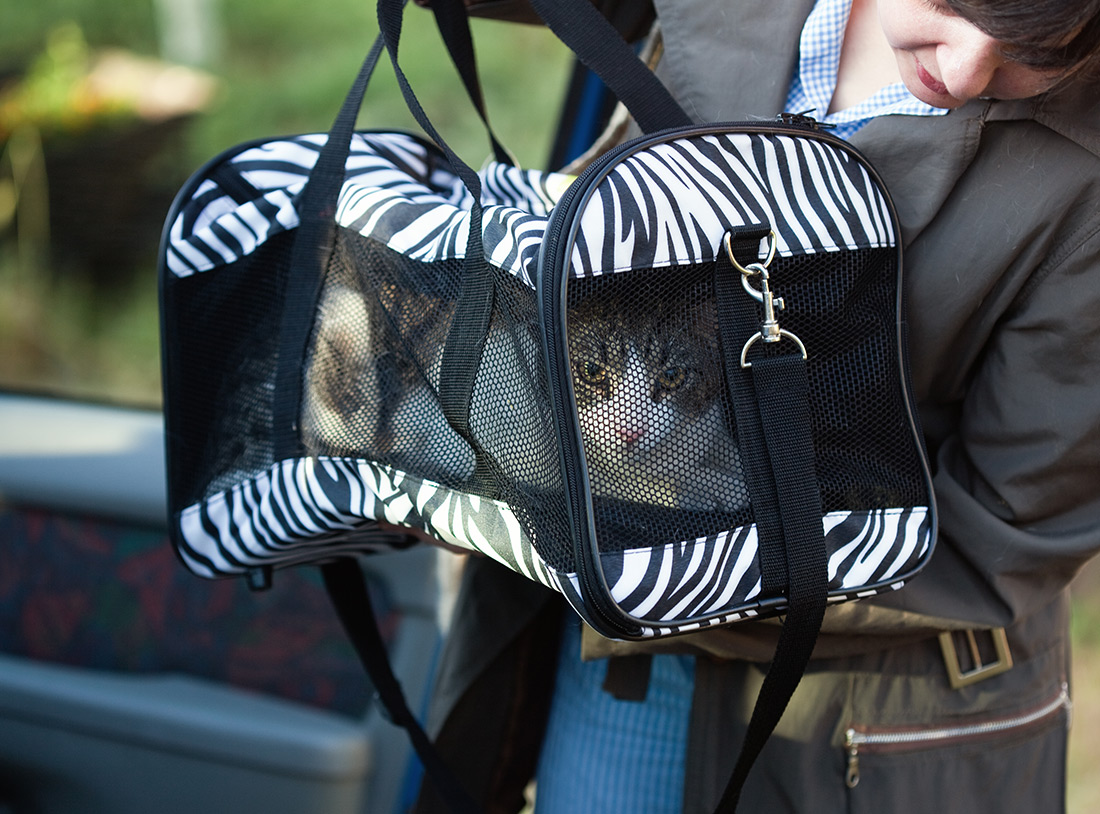
Tips for traveling with your pet
When making travel decisions, choose what is safest and most comfortable for your pet. For instance, unless you’ll be able to spend a lot of time with your dog, they’ll probably be happier at home than tagging along on your trip. As a rule, cats are almost always better off in their own home.
But if you have decided it’s best to bring your pet along, follow our tips for a safe and low-stress trip.
By car
Do you know the best place for your dog or cat in your car?
Dogs shouldn’t roam in the car
The safest way for your dog to travel in the car is in a crate that has been anchored to the vehicle using a seat belt or other secure means. Dog restraints or seat belts are useful for preventing your dog from roaming around the car and being a distraction to the driver, but they haven’t been reliably shown to protect dogs during a crash.
Cats belong in carriers
Most cats aren’t comfortable traveling in cars, so for their safety as well as yours, keep them in a carrier. It’s important to restrain these carriers in the car so that they don’t bounce around and hurt your cat. Do this by securing a seat belt around the front of the carrier.
Leave the front seat for humans
Keep your pet in the back seat of the car. If an airbag deploys while your pet is in the passenger seat (even in a crate), it might injure your pet.
Keep those heads inside!
Dogs and cats should always be kept safely inside the car. Pets who are allowed to stick their heads out the window can be injured by particles of debris or made sick by having cold air forced into their lungs. Never transport a pet in the back of an open pickup truck.
Give your pet plenty of rest stops
Stop frequently to allow your pet to exercise and eliminate. But never permit your pet to leave the car without a collar, ID tag and leash.
Bring along a human buddy
Whenever possible, share the driving and pet care-taking duties with a friend or family member. You’ll be able to get food or use the facilities at rest stops knowing that someone you trust is keeping a close eye on your pets.
Don’t ever leave your pet alone in a car!
A quick pit stop may feel like no time at all to you, but it’s too long to leave your pet alone in a car. Heat is a serious hazard: when it’s 72 degrees Fahrenheit outside, the temperature inside your car can heat up to 116 degrees within an hour. On an 85-degree day, even with the windows slightly open, the temperature inside your car can reach 102 degrees in just 10 minutes. Even if you’re certain of your timing, you can get held up — in just 30 minutes, you could return to a 120 degree car and a pet suffering irreversible organ damage or death.
If you see a pet left inside a hot car take these steps to help them.
Spread the word about the dangers of leaving pets in a hot car by printing our Hot Car flyer (PDF), posting it in public places and sharing it with your friends, family and coworkers.
A year-round hazard is the unspoken invitation you issue to pet (and car) thieves any time you leave your pet alone in a car.